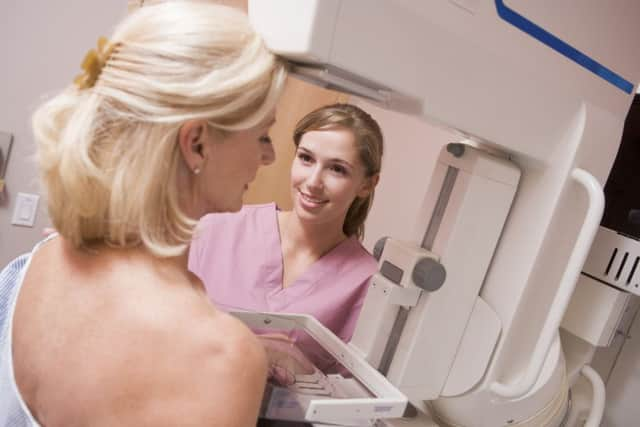Nicolas White: Support vital after breast cancer treatment


But this doesn’t tell the full story. More people living longer after a diagnosis means support is needed for years afterwards. For many women, the hardest moment comes when hospital treatment ends.
Most expect to feel relieved, celebrating with loved ones and getting on with life. Instead, they suddenly feel lost. The routine of hospital appointments is gone, and very often women feel isolated as the support network they have grown used to – from health professionals as well as family and friends – begins to fall away.
Advertisement
Hide AdAdvertisement
Hide Ad“My treatment was like having a wee security blanket… once you are discharged you feel like you would be pestering the hospital,” explained Alison, who has been supported by Breast Cancer Care Scotland.
The emotional and physical fallout can be overwhelming. Women can struggle with lymphoedema, a debilitating swelling of the arm which can make it difficult to do simple things like carry shopping or pick up children. They may also be taking hormonal treatments which cause menopausal side effects, joint pain and constant fatigue.
Sometimes the impact on mental health is even harder to cope with. Every headache or twinge of back pain can spark fears that the cancer may have spread to other parts of the body, which is incurable.
Checking breasts regularly when the chest may have changed so much after surgery can seem daunting. Anxiety and depression are common among people adjusting to their ‘new normal’ and reflecting on the life-changing experience they have faced.
So, it’s vital that support services are an integral part of the patient pathway, not just when someone receives a diagnosis and throughout their treatment, but for as many years afterwards as necessary. When these issues come to the fore women can be unsure of how to get back in touch with their healthcare team, are reluctant to add to what they know is an already heavy workload, or think their worries are too trivial to report. Although breast care nurses are always on hand, many patients look for support elsewhere.
This is where the third sector has a significant role to play. If breast care nurses know they have a reliable, trustworthy organisation to refer to which is able to provide services to enhance the wellbeing of patients – as well as take the strain off health services – this can create a partnership invaluable to all involved.
By working together, the NHS and charities like Breast Cancer Care can be sure of providing information and support to women across Scotland who desperately need it, giving them the confidence they need to take that next step in moving forward, knowing they are not alone.
Nicolas White is Head of Scotland at Breast Cancer Care.